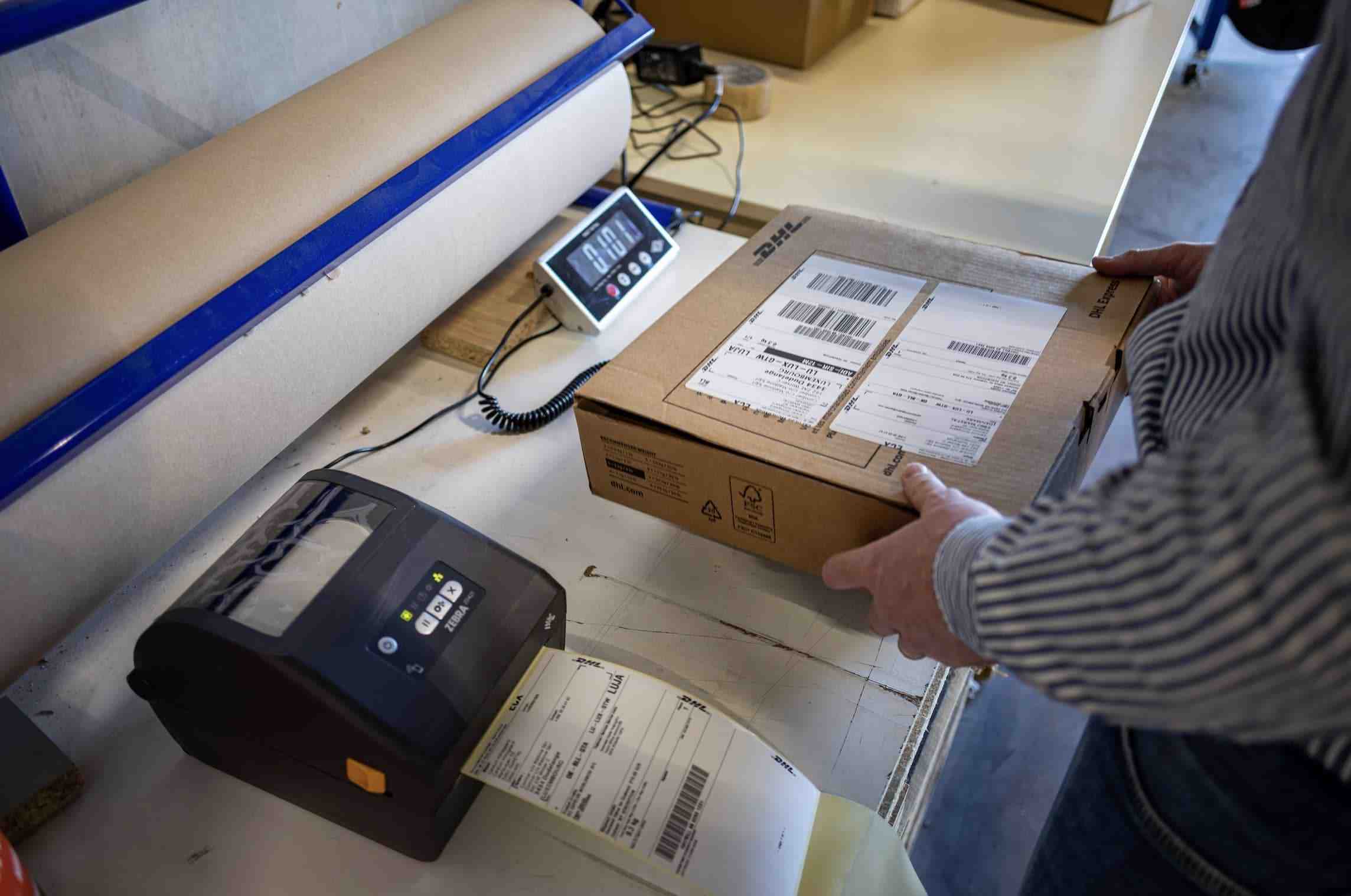Is your e-commerce logistics provider costing you sales?

Choosing an e-commerce logistics provider is a strategic decision. A poor choice can be costly: preparation errors, delivery delays, unmanaged returns… and revenue loss. Outsourcing your e-commerce logistics doesn’t mean handing over control blindly. It’s about entrusting a pillar of your business, your customer relationship, and your brand image. How can you avoid unpleasant surprises? What are the key criteria for selecting a reliable, agile logistics provider truly suited to your needs?
What are the specificities of e-commerce logistics?
E-commerce logistics differs from traditional logistics in several key aspects. It involves unit order preparation, often urgently, with lower average basket sizes and highly variable volumes depending on periods (sales, holidays, promotions…). Additionally, it requires very demanding returns management.
An e-commerce logistics provider must therefore be able to handle:
- Unit preparations, sometimes personalized
- Highly heterogeneous flows
- Rigorous traceability of operations and inventory
- Integration of its IT tools with your CMS, ERP, CRM, or marketplace
- An impeccable customer experience, even post-purchase
Why properly managing e-commerce logistics specificities prevents major errors
E-commerce logistics must address the following challenges: execution speed, shipment reliability, smooth returns management, traceability… When an e-commerce logistics provider fails to consider or poorly manages these specificities, the consequences can quickly impact your overall performance, and more importantly, your brand image.
Common errors include incomplete packages or incorrect products, often due to faulty picking. Shipping delays also occur when a rigid internal organization prevents timely volume processing. Another critical point is the synchronization of information between your e-commerce site and warehouse inventory. Poor synchronization leads to invisible stockouts or unfulfilled sales. Finally, poorly or belatedly handled customer returns can overwhelm your customer service.
Customers don’t perceive these issues as logistical problems. For them, a late or incorrect package is a direct failure of your brand. They won’t return, and more importantly, they’ll share their negative experience publicly—on social media, in customer reviews, or through word-of-mouth. In e-commerce, a disappointed customer never leaves alone: they drive others away.
Therefore, it’s crucial to rely on a provider who understands the challenges of e-commerce logistics to help you uphold your customer promise.
What are the signs that your e-commerce logistics provider is hindering your growth?
An unsuitable provider hinders your growth instead of accelerating it. What are the signs that it might be time to change your e-commerce logistics provider?
- Your customers complain about receiving packages late or incomplete
- You spend excessive time correcting or following up on orders
- Returns are poorly handled or not at all
- Your logistics data is unreliable or inaccessible
- You can’t anticipate your needs or inventory
How to measure the effectiveness of your e-commerce logistics provider?
Effective e-commerce logistics directly reflects in your results: fewer errors, higher customer satisfaction, and better cost control. To evaluate your e-commerce logistics provider’s performance, monitor these key performance indicators (KPIs):
- Preparation error rate: a good provider should ensure reliable picking without product mix-ups.
- Average order processing time: every hour counts in e-commerce. A responsive warehouse accelerates your delivery times.
- Return rate: a high rate may indicate logistical errors (non-compliant product, wrong size sent…).
- Logistics cost per order: a good partner should help you optimize costs without compromising quality.
- Customer dispute resolution time: the faster, the better for maintaining satisfaction.
If these indicators are in the red or declining, it might be time to reconsider your e-commerce logistics provider.
What are the criteria for choosing your e-commerce logistics provider?
To choose your e-commerce logistics provider, consider these essential criteria before signing:
- Operational capacity: can they handle your volumes, manage your product types, and absorb your activity peaks?
- Strategic location: a well-located warehouse, for example in Luxembourg, allows for reduced delivery times across the EU.
- Technology and integration: your e-commerce logistics provider should quickly interface with your tools (CMS, ERP, marketplace) to ensure error-free flows.
- Pricing and carrier negotiation power: a good 3PL pools client volumes to obtain preferential rates from carriers. This translates to optimized delivery costs… and better margins for you.
- Transparency and performance: a logistics provider should offer full visibility into operations via dashboards, KPIs, and real-time alerts.
- Human support: beyond tools, you should rely on a trained, responsive team capable of understanding your business challenges.
Comber logistics: your e-commerce logistics partner based in luxembourg
At Comber Logistics, we support ambitious e-commerce merchants daily in managing their logistics. Our goal: save you time, reduce costs, and ensure an impeccable customer experience.
Our added value:
- A modern infrastructure located in Luxembourg, at the heart of Europe.
- Odoo expertise, with rapid, customized integrations without re-entry.
- Field teams trained to meet e-commerce demands: picking, packaging, traceability, returns management.
- Quick setup without prohibitive setup fees.
- A growth-oriented vision, with an organization capable of adapting to your ambitions.
 Client area
Client area

 Subscribe
Subscribe